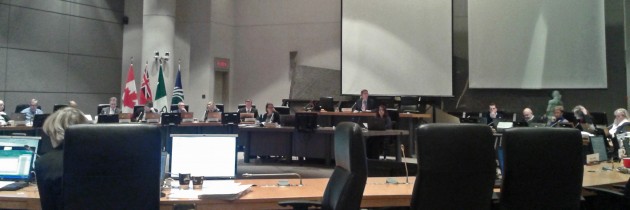Advertising and sponsorship revenue leads to tension at parks and recreation
By Ethan Cabel
Ottawa’s advertising and sponsorship program has failed to meet revenue targets projected to benefit the parks and recreation department, leading at least one influential councillor to call for an end to the initiative.
The City of Ottawa approved the advertising and sponsorship program in 2011 as part of a concerted effort to generate private revenue sources, largely affecting parks and recreation facilities that are susceptible to advertising opportunities like naming rights and advertising contracts at hockey arenas.
As part of a summary of risks, a recent budget briefing note on parks and recreation stated that “advertising and sponsorship remain a challenge to achieve.” It went on to identify “market conditions” and the “allocation of some sponsorship funds to facility enhancements” as main contributors to the problem.
However, according to Councillor Peter Clark, vice chair of the standing committee on finance and economic development, the program has fallen far short of its projected targets because revenue opportunities are inherently limited.
“We don’t need to spend that money because it’s not profitable, it’s not a good expenditure,” Clark said of the program, which employs several full-time and part-time city officials.
“Having advertising in a rink that caters to eight-year-old hockey with an average 40 people in the stands, all parents, it’s not necessarily an attractive advertising opportunity.”
The program has a target of $12.7 million in total sponsorship and advertising revenue between 2011 and 2015.
In April, a city report revealed the program had fallen more than $2 million short of its over $3 million target, raising just $773, 309 in revenue for 2012.
Despite less-than-stellar first year results, the program remains in place going forward and Councillor Mark Taylor, chair of the standing committee on community and protective services, sees significant room for growth.
“We’re marketing municipal assets at the same time lots of others are looking for sponsorship of a variety of different things, so we’re competing in a market we’ve never competed in before,” Taylor said, adding that there as been an unanticipated learning curve associated with the program.
Part of that learning curve involves naming rights on large city assets.
According to Taylor, the original intention of the program was that donations associated with the naming of city assets, like public arenas, would fall into the city’s general operating revenues.
What Ottawa public officials have discovered, however, is that donors typically want to direct the money into specific areas of their choosing.
This requires further creativity on the part of staff if they are going to meet revenue targets by 2015, Taylor said.
He cited a deal in the first year of the program, which awarded Coca Cola a contract for “pouring rights” at city facilities that will generate $1.2 million over five years as a model for other advertising agreements.
Dan Chenier, director of Ottawa’s parks and recreation department, was unavailable for comment before publication.

